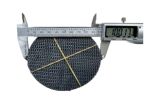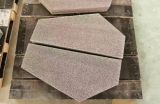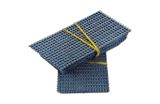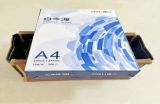Aug. 20, 2024
When it comes to molten aluminium filtration, achieving high-quality results is crucial. One of the most effective tools for this task is fiberglass mesh filters. These filters play a pivotal role in ensuring the purity and performance of aluminium products. But what exactly makes fiberglass mesh filters so indispensable? Let’s dive into the details.
Fiberglass mesh is a versatile material made from woven strands of glass fibers. It’s renowned for its high strength and resistance to high temperatures. Fiberglass mesh is engineered to withstand the harsh conditions of molten aluminium, providing a reliable filtration solution.
Fiberglass mesh filters are used to remove impurities and contaminants from molten aluminium. This filtration process is crucial for improving the quality of the final aluminium products, reducing defects, and enhancing the material’s overall performance. By filtering out unwanted particles, these filters ensure a smoother and more consistent aluminium cast.
High Temperature Resistance: Fiberglass mesh can withstand extremely high temperatures, making it ideal for molten aluminium filtration.
Durability and Longevity: The robust nature of fiberglass ensures that the filters have a long operational life, even under demanding conditions.
Efficiency in Filtration: Fiberglass mesh filters offer superior filtration efficiency, capturing even the smallest contaminants effectively.
Fiberglass mesh filters operate by allowing molten aluminium to pass through a fine mesh screen. This screen traps impurities, such as oxides and debris, while allowing the purified aluminium to flow through. Different types of fiberglass mesh filters, including those with varying pore sizes, can be used depending on the specific filtration requirements.
Fiberglass mesh filters are widely used in various industries. In industrial aluminium casting, they help produce high-quality aluminium with minimal defects. Additionally, these filters are crucial in the automotive and aerospace industries, where precision and quality are paramount.
Metal Mesh Filters: While metal mesh filters are also used in aluminium filtration, they may not offer the same level of high-temperature resistance and efficiency as fiberglass mesh filters.
Ceramic Filters: Ceramic filters are another alternative, known for their high performance but can be more expensive compared to fiberglass mesh filters.
When selecting a fiberglass mesh filter, consider factors such as the size of the filter, pore size, and temperature resistance. Avoid common mistakes like choosing a filter that is too coarse or not suitable for high temperatures.
Finding a reliable supplier is crucial for acquiring high-quality fiberglass mesh filters. If you need assistance or have specific requirements, feel free to contact us. We can provide more information and help you find the right solution for your needs.
Fiberglass mesh filters are an essential component in the aluminium filtration process, offering durability, efficiency, and high-temperature resistance. By understanding their benefits and applications, you can make an informed decision for your filtration needs.
What is the lifespan of a fiberglass mesh filter?
The lifespan of a fiberglass mesh filter can vary based on usage and maintenance, but they are generally designed to last a long time under normal operating conditions.
Can fiberglass mesh filters be used in other metals besides aluminium?
Yes, fiberglass mesh filters can be used for filtering other molten metals, although they are primarily designed for aluminium.
How do I clean a fiberglass mesh filter?
Cleaning methods depend on the specific filter and application, but regular inspection and following manufacturer guidelines will help maintain filter performance.
What are the costs associated with fiberglass mesh filters?
Costs can vary based on size, type, and supplier. It’s best to get a quote from a reliable supplier to understand the pricing for your specific needs.
Are there any safety concerns with using fiberglass mesh filters?
While fiberglass mesh filters are safe to use, it’s important to handle them carefully and follow safety guidelines to avoid exposure to glass fibers.
Round Fiberglass Filter Mesh For Recycled Aluminium Melt
Jan. 28, 2026
Fiberglass Filter Mesh Are Exported To Our Abroad Client
Jan. 14, 2026
TF COMBO BAG to filter aluminum ingot and billet
Jan. 13, 2026
Contact Us
+86 158 3011 4065
Guoruiyuan Building, ShengLi North Street, Chang'An District, Shijiazhuang City, Hebei Province, China.
Navigation
Navigation




